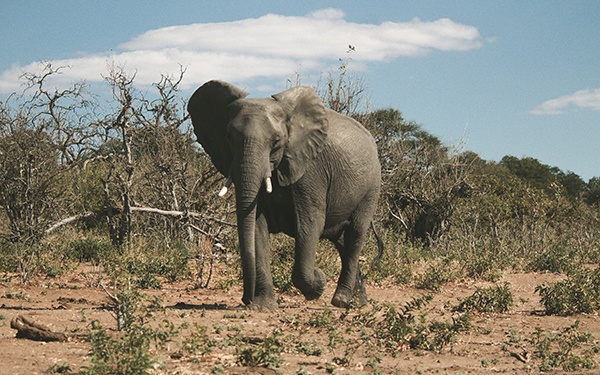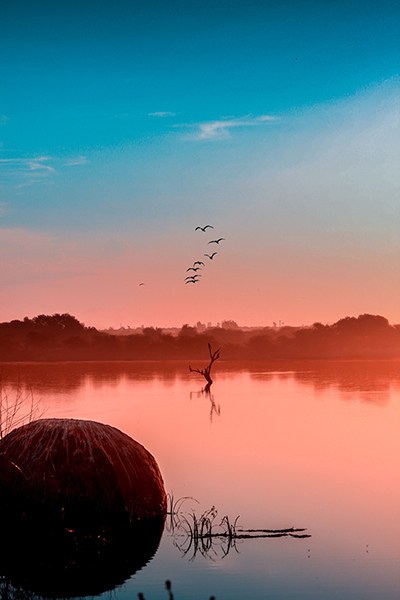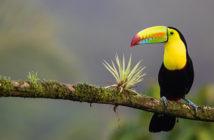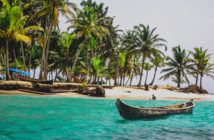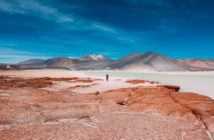Are you thinking about moving to Botswana from the UK?
Botswana is blessed with sublime beauty, from the dreamy deserts, towering baobabs, and fossil river valleys of the Kalahari to the natural abundance of the wild and wonderful Okavango Delta with far reaching flood plains, palm trees, and islands.
More than a third of this inland nation is made up of national parks and nature reserves. It’s one of the last remaining true havens for wildlife in the world, from the roaming herds of majestic elephants, to magnificent leopards and black maned lions, impressive stampedes of buffalo, and innumerable exotic bird species.
All this boundless earthly wonder has helped Botswana built a thriving tourist industry based around exclusive low impact, high cost tourism.
As a result it has one of the most stable democracies in Africa, plus an economy that is positively booming, making it the continent’s richest country. Botswana holds plenty of promise for expats who wish to start a life there, most of whom congregate in the big cities.
Do you fancy making your move to Botswana? Here’s our comprehensive guide to help you achieve your dream…
Contents
Botswana Visa Requirements for Brits
If you’re planning on visiting or staying in Botswana for any period of time you will need to ensure that your passport is valid for a minimum of 6 months after your date of arrival, and that you have received all the necessary vaccinations.
Children of less than 18 years of age must provide a certified copy of their full birth certificate as well as a valid passport.
Visiting
As Botswana is part of the Commonwealth, Brits can enter the country for visits of up to 90 days without a visa. If staying and / or working for longer periods of time, UK citizens are usually required to apply for residency and a work permit.
Alternatively, contact the Department of Immigration to request an extension.
Working
Getting hold of a work permit in Botswana can occasionally be a little trying as regulations can be a little obscure and subject to change.
That said, Brits cannot legally work in Botswana without one, and to obtain one it is necessary to fill out an application form, plus provide proof of a valid job offer, bank statements, and an up to date medical report.
It is possible to apply at the UK High Commission and to do so you will require documentation including bank statements, an application form, any work or residency permit, and full birth certificate.
Work permits are valid for the length of time that the Regional Immigrants selection board decide is appropriate, and are renewable.
Permanent Residency
If you want to make Botswana your permanent home, you will need to have already lived there for 10 years or more.
Alternatively, foreign investors who make a significant contribution to the economy can have the right to permanent residency after they have lived in Botswana for more than 5 years.
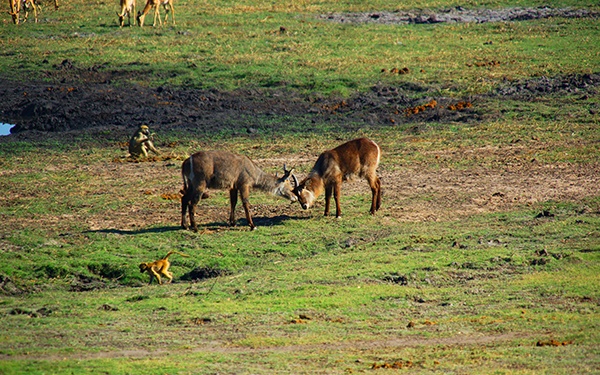
Way of Life in Botswana
Lifestyle
Luckily for us Brits, Botswana’s official language is English. However the native language — Setswana — is also spoken everywhere, particularly in more rural areas, and is well worth learning to really integrate with the locals and appreciate more fully the way of life.
Botswana covers an area roughly the same size of France and has a rich cultural heritage, but only has a population of around 2 million people.
There are a number of indigenous peoples, the largest group of which are the Tswana people, many of whom live in towns and villages, each with its own chief and individual court system known as kgotla.
For the Tswana wealth and status is measured by the number of cattle you own. The Kalahari is home to the Basarwa — or Bushmen — one of the most ancient ethnic groups in existence, who believe that everything in nature is connected and that all humans and animals are equal.
Ceremony and religion is an important part of Botswana culture, and although approximately half of the native population are Christian, many still follow African religion and adhere to traditional beliefs and ceremonies.
Music, singing, and dance is an important part of Botswana culture, and both traditional and modern music can be heard everywhere you go, and plays an important part in every day activities as well as major events such as weddings.
Urban life is a world apart from life in rural areas. Cities are heavily westernised and quite cosmopolitan, with decent schools and healthcare facilities, shopping malls, restaurants and bars, supermarkets, and all the other things that you would expect to see in a city, as well as some good job opportunities for expats.
The people are friendly and like to have fun on weekends, with barbecues and booze being a popular way to relax and socialise, in fact beer is very popular in Botswana.
Both cities and rural areas are very safe too, with low crime rates, and everywhere you go there is a strong sense of community.
The exception to this is the capital city Gaborone, where crime such as petty theft and car jacking are on the rise.
Here’s a great video on a British-Canadian couple and their life in Botswana:
Getting Around
Botswana’s transport infrastructure has seen some great improvements in recent years, but it still has a long way to go by western standards. That said, there are paved roads which connect all the major towns and cities, and the majority of people choose to drive to get around.
There are a few other options however. Botswana has a few airports, and there are a small number of domestic flights between the major cities — most of which fly to and from the capital Gaborone. Flights can also be chartered if you need to get to more remote areas of the country easily.
Buses are another choice when travelling between major towns and villages, but again, routes are limited with more out of the way locations not being covered, and many services are infrequent or may be suspended if weather and road conditions are poor. That said, buses are a comfortable and cheap way to travel, but there is very little in the way of long distance services if you are looking to cover a lot of ground.
Taxi services are available in the big cities such as Gabarone and Maun. Those which are correctly licensed have a blue numberplate — any others should be avoided. Taxis should be called for in advance or caught at a taxi rank. Fees are negotiable unless you are sharing a cab, in which case you will pay a fixed price. Taxis can also be chartered for longer trips or sightseeing, for a fairly reasonable price.
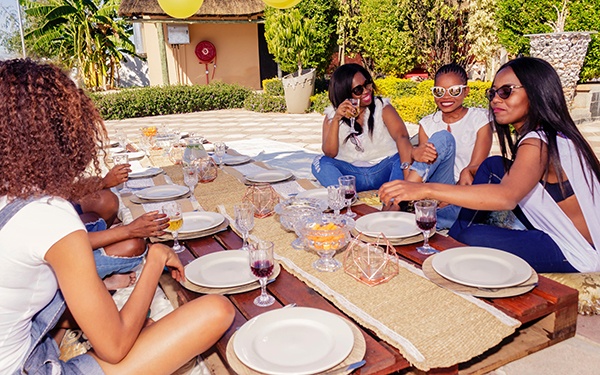
Driving in Botswana
Having your own transport is probably the easiest way to get around Botswana.
A UK driving license is valid here for stays of up to 6 months, after which time you will may wish to obtain an international driving license which is valid for 1 year.
If you want to hire a car you must be at least 21 and have already held your UK license for a minimum of 2 years.
As the road infrastructure is limited in Botswana, 4 wheel drive vehicles are the best choice for getting you to everywhere you need to go, and many come ready equipped with tools and everything you need for lengthy camping trips.
Drive on the left hand side of the road, and don’t exceed the speed limit as there are often police with speed cameras who give out hefty on the spot fines.
Be aware that wildlife and livestock are a real hazard in Botswana, as they regularly wander onto tracks and roads.
The risk of hitting one increases after sundown, so it is advisable to stick to driving during daylight hours only.
Weather in Botswana
Botswana has a typical southern African, semi arid climate with a dry winter season and a rainy summer season.
Winter starts in April and continues until September, bringing pleasantly warm days of around 25°C to 28°C with blue skies and no rain.
However night time and early morning temperatures can be very cold, dropping to below freezing at night and hovering around 6°C on average in the morning until things start to heat up.
There is little to no rain during winter, and water sources dry up, leading to drought problems for both animals and humans.
Late September into October hails the start of the Botswana summer, so be prepared for a dramatic temperature hike, peaking at averages of 38°C in the shade. Temperatures drop a little as summer advances, but still remain hot at around 30°C to 33°C during the day, and chilly at night.
With the summer heat comes increased levels of humidity, and frequent rainfall — usually in the form of dramatic thunderstorms. The peak months for rainfall are January and February.
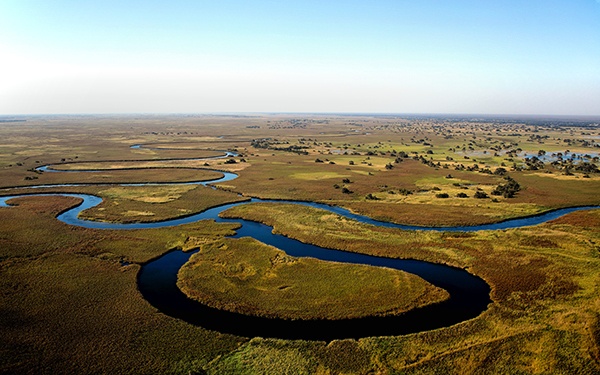
Cost of Living in Botswana
Lifestyle
Expats can live a very affordable lifestyle in Botswana, although of course if you’ve got the cash to flash it’s possible to live luxuriously too.
The capital city Gabarone is the most expensive place to live in the country, with rural areas being the cheapest. Most expats choose to live in the cities where prices are higher but where they have better facilities and more conveniences to hand.
On average though, living costs in Botswana are a staggering 90% cheaper than in the UK. Groceries aren’t as cheap as they could be, as nearly everything is imported from elsewhere in southern Africa, but prices are still affordable.
When eating out you can choose between dirt cheap local restaurants or higher priced top end restaurants depending on your personal choice and budget.
Utilities are inexpensive, costing around the equivalent of £40 per month for a 1 person apartment with air conditioning.
Internet however is relatively expensive and somewhat slow, but there is surprisingly good mobile coverage even in many rural areas.
Rent
Rent in Botswana is usually any expats biggest monthly expense, but is still affordable by UK standards. For example a nice, furnished, 2 bedroom apartment in a good central city location in the capital will set you back around 12500 BWP, which is the equivalent of around £925 per month — cheap by London standards.
Further out from the city centre and the farther away a property is from schools and public transport, the lower the rental costs will be.
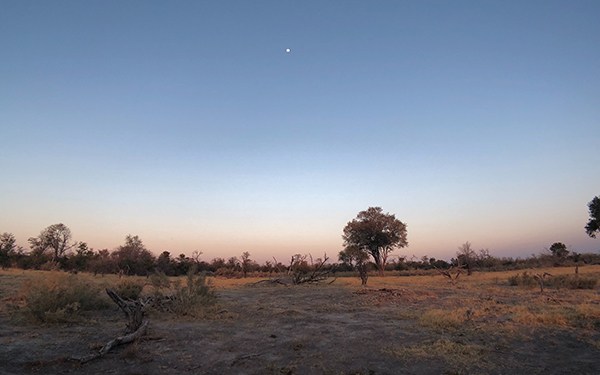
Healthcare
Healthcare in Gabarone and other major cities is to a reasonable standard with good facilities and qualified staff, and there are also a small number of private clinics offering medical care to a higher standard.
Outside of the cities medical facilities and resources are limited and of a far lower standard.
Expats who chose to use public healthcare should expect to pay a fee of around £50 for most health services. It is preferable for expats to take out private health insurance which gives them access to the best standard of medical care possible and to cover evacuation to another country with better facilities and doctors in the case of a medical emergency.
Schooling
Primary education in Botswana is free and — in the cities — of a reasonable standard, with lessons taught in English.
In less urban areas standards of education are poor and education resources are lacking. Secondary education is not free, with fees varying depending on the location and reputation of the educational establishment.
The majority of Brits living in Botswana prefer to send their children to one of a growing number of private or international schools.
These schools offer an excellent standard of education, and many teach according to the UK National Curriculum.
Most private and international schools are based in Gabarone, but fees can be fairly pricey, ranging from £1700 to £4350 per year.
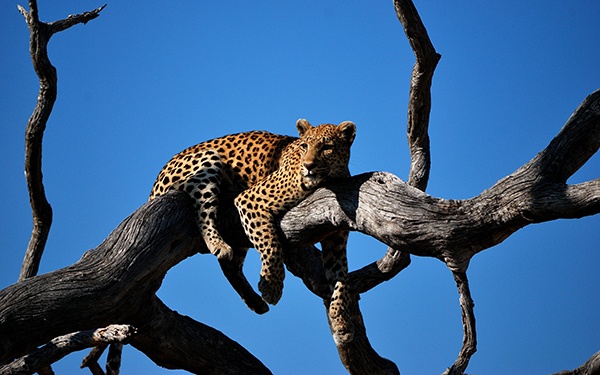
Popular Areas for Brits
Gaborone
A far cry from its humble beginnings, Gabarone is a thoroughly modern capital city with a calm, laid back feel.
Though relatively small and unassuming, Gabarone is fast expanding and very liveable. Contemporary buildings house vast shopping malls, supermarkets, a wide range of restaurants, bars, and eateries, and a few decent nightlife spots that stay open until around 2 am.
Botswana’s best schools and medical facilities can be found here too. Golf enthusiasts will love the nearby luxury Phakalane Golf Estate, and the wonders of the Kalahari are just on the doorstep.
Maun
Maun is a buzzing tourist hub set on the broad banks of the Thamalakane River right on the edge of the extraordinary Okavango Delta, and is the main starting point for many safari and wilderness adventures.
A blend of both new and old, modern buildings share space with mud huts. There are numerous hotels here, as well as government departments, shopping centres, a range of restaurants and hip bars, and facilities including supermarkets, and banks.
Francistown
One of Botswana’s oldest towns and the country’s second largest city, Francistown was originally founded on the fortunes of its gold mines.
Considered southern Botswana’s gateway to the north, Francistown is now a major centre of industry and commerce, and is rapidly growing.
The city has a decent range of hotels, supermarkets, and places to eat, and is also the ideal base for exploring the sparkling salt pans of the Kalahari, and the multitude of game reserves to the south.
Serowe
Located in central Botswana, royal Serowe is rich in tribal history and culture, being founded by King Khama III of the Bamangwato tribe in 1903.
There are numerous sites of interest including the royal cemetery and memorial museum, and the nearby rhino sanctuary which shouldn’t be missed.
The modern town centre has a decent range of facilities and entertainment options.
Jobs in Botswana for British Expats
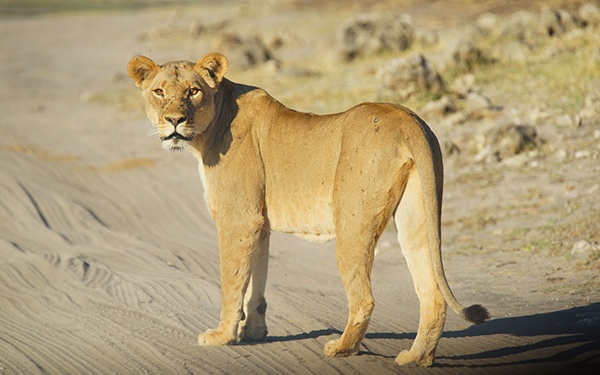
Botswana is famous for its diamond mining industry, but there are also increasingly more opportunities opening up for expats in the Botswanan booming tourist industry, Information and Communications sectors, and possibly Africa’s biggest and best financial industry.
Teaching and customer service are other common career choices. The fact that the nation’s first language is English is a huge plus point for Brits seeking work in Botswana, although learning the local lingo will always add to your employability.
Still considering a move to Botswana?

